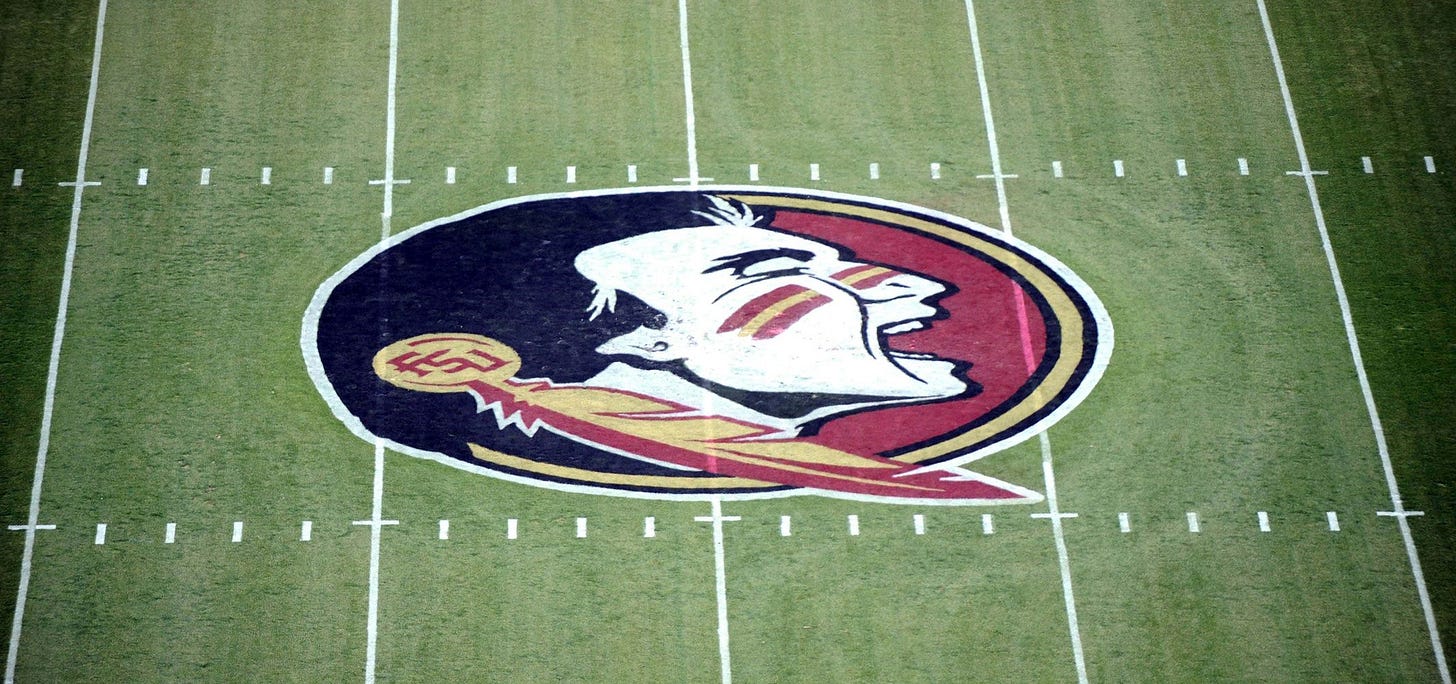Private equity and college sports are incompatible
The possibility of college athletic departments getting in bed with private equity has become more realistic following the landmark House v. NCAA decision. It's a bad, terribly misguided idea
Late last month, the NCAA and the Power Five conferences – including the awaiting-its-deathbed Pac-12 – announced a settlement to resolve three ongoing antitrust cases, the most prominent of which was House v. NCAA.
The settlement not only took care of the college athletes of yesteryear – it included a $2.77 billion payout to former Division I athletes, going back to 2016 – but it will aid athletes in the years to come, complete with a revenue-sharing model between schools and their athletes.
It was seismic news in the world of college sports, something that ESPN’s Pete Thamel succinctly described as amateurism being dead.
(The Athletic and Forbes both have excellent explainers on the decision and its ramifications)
Even before the settlement was officially unveiled, the opportunists had already emerged.
On May 22, private investment firms RedBird Capital and Weatherford Capital announced the creation of an entity they dubbed “College Athletic Solutions,” the kind of generic name that, because it’s so generic, comes across as something nefarious.
In this post-House v. NCAA universe, College Athletic Solutions would lend money and financial guidance to college athletic departments in exchange for a share of the department’s future revenue.
“The paradigm shift we are seeing in the collegiate athletics ecosystem is similar to the ones we’ve seen with media distribution models, collective bargaining rights and premium hospitality,” RedBird Capital founder and managing partner Gerry Cardinale said to the Associated Press. “They’re all centered around the need to create long-term growth by bridging the gap between premium (intellectual property) and optimizing revenue streams. CAS addresses athletic departments’ need for near-term capital with additional operational expertise across strategies that can improve competitive positioning.”
(I’m going to safely assume it’s called RedBird Capital because his last name either has “Cardinal” in it or is pronounced the same as cardinal.)
“We are in the late stages of the competitive divide between athletic departments and programs,” Drew Weatherford, a former Florida State quarterback and the head of Weatherford Capital, said to the Associated Press. “The impact of conference realignment, diverging media rights deals, and the advent of NIL and revenue sharing is creating a greater financial divide at both the university and conference level. History has proven that the universities that adeptly invest in their athletic departments consistently win and outpace peer institutions. Our mission at CAS is to offer athletic departments a unique capital solution to invest when and where they need it to compete at the highest level during this tenuous paradigm shift.”
If College Sports Solutions sees an opening to assert its presence in the world of college sports, it’s assessing the situation correctly.
College athletic departments across the country and at various levels of the enterprise are about to experience a significant budgetary crunch after enjoying the benefits of an unpaid labor force for more than a century.
First, there’s a matter of footing more than half of that $2.77 billion settlement, with the NCAA reportedly handling $1.1 billion, the Power Five conferences taking care of $1.65 billion and the remaining 27 Division I conferences being left with the remaining $990 million. And that’s only part of the equation. Moving forward, schools can share up to about $20 million per year with their athletes, a figure that will only go up with a reported automatic four percent annual increase in that purse based on expected revenue jumps for these schools. The kind of budget items that would have once seemed like a cruel joke to athletic administrators will now, quite literally, be a cost of doing business.
To take care of that, they’ll need money for the sorts of expenses they never anticipated having. If they’re unsure of where to find it, particularly in a moment in which they’re likely on their heels, private equity is more than happy to lend a hand.
In some instances, colleges have sought out that help.
More than a full year before the House v. NCAA settlement was reached, Florida State had been negotiating with at least two private equity firms, Sixth Street and Arctos Partners, about getting some much needed cash as the university picks what could be an expensive fight with its conference, the ACC, and as it seeks to potentially leave the league, a move that could end up costing it an estimated $572 million, largely due to forfeited media rights revenue.
As reporting from Sportico in January detailed:
The private equity talks were internally nicknamed “Project Osceola”—after the famous Seminole leader and FSU mascot—and they appear to center on the creation of a NewCo to house commercial rights from the school’s athletic department. That entity could then take on outside capital. This structure has become common for PE investments in sports, including Silver Lake’s backing of the New Zealand All Blacks rugby team and CVC’s financing of LaLiga, the top Spanish soccer league.
Private equity has already dipped its toes – and more – into professional sports. Sixth Street is an investor in Real Madrid, Barcelona, the San Antonio Spurs and Bay FC, the Bay Area’s NWSL expansion team, while Arctos has passive stakes in Liverpool, the Boston Red Sox, Los Angeles Dodgers, Golden State Warriors, Philadelphia 76ers and New Jersey Devils.
In the college ranks, though, this arrangement would be the first of its kind and, if one of the Seminoles’ former football players has his way, it certainly wouldn’t be the last.
Keep reading with a 7-day free trial
Subscribe to The Front Porch to keep reading this post and get 7 days of free access to the full post archives.




